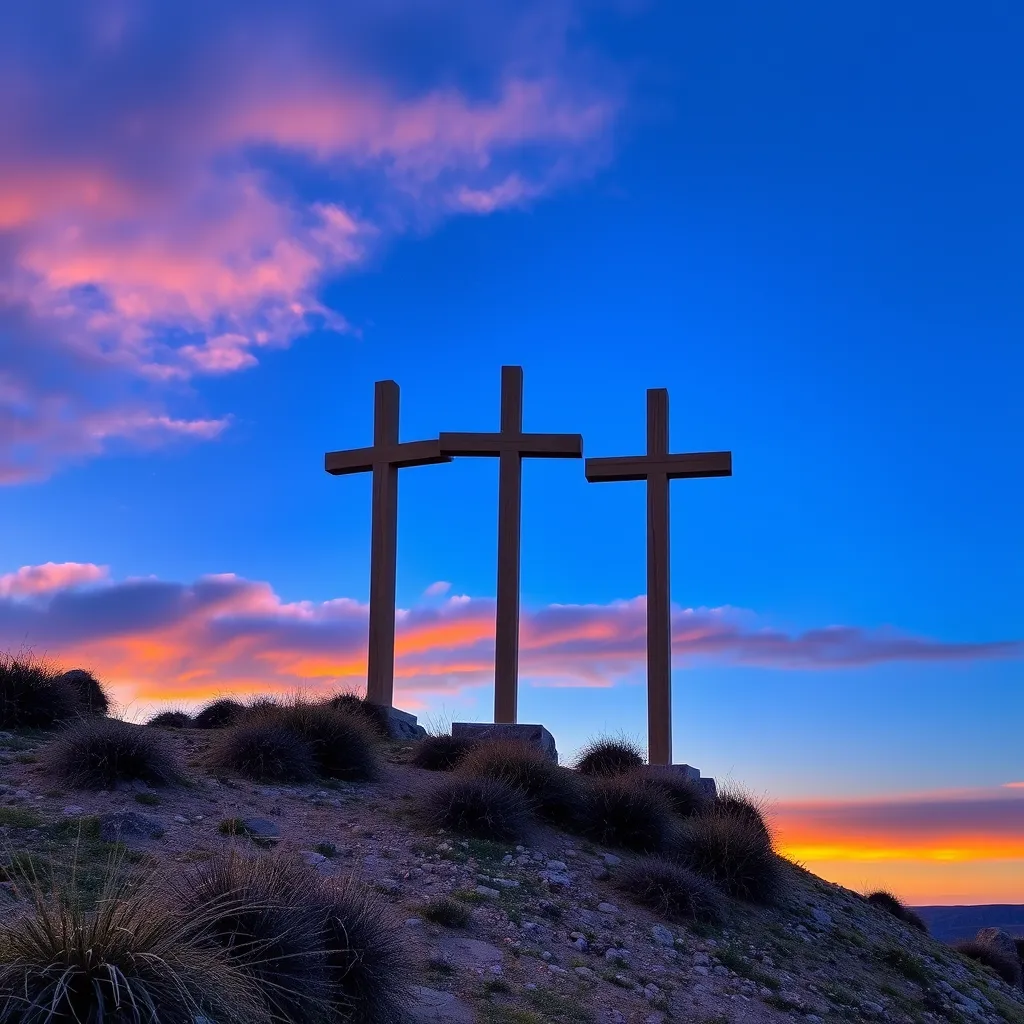
Chapter 1
(*Bible verses are from the New International Version [NIV] unless otherwise noted)
1 The revelation from Jesus Christ, which God gave him to show his servants what must soon take place. He made it known by sending his angel to his servant John,
2 who testifies to everything he saw—that is, the word of God and the testimony of Jesus Christ.
3 Blessed is the one who reads aloud the words of this prophecy, and blessed are those who hear it and take to heart what is written in it, because the time is near.
4 John, To the seven churches in the province of Asia: Grace and peace to you from him who is, and who was, and who is to come, and from the seven spirits before his throne,
5 and from Jesus Christ, who is the faithful witness, the firstborn from the dead, and the ruler of the kings of the earth. To him who loves us and has freed us from our sins by his blood,
6 and has made us to be a kingdom and priests to serve his God and Father—to him be glory and power for ever and ever! Amen.
7 “Look, he is coming with the clouds,” and “every eye will see him, even those who pierced him”; and all peoples on earth “will mourn because of him.” So shall it be! Amen.
8 “I am the Alpha and the Omega,” says the Lord God, “who is, and who was, and who is to come, the Almighty.”
While he is an exile on the Island of Patmos, John has a vision
In the opening verses, John describes his location and the divine revelations he received on “The Lord’s Day.” He narrates his story in the first person, humbly identifying himself as God’s servant. This transformative experience unfolded during his exile on the Isle of Patmos, a remote island in the Aegean Sea. Patmos, a small island located 37 miles southwest of the mainland of Asia Minor (present-day Turkey) and about 60 miles from Ephesus, served as a penal colony. John reveals that he was banished there “Because of the word of God and the testimony of Jesus.” This exile, a testament to his unwavering faith, underscores the depth of his devotion and sacrifice.

The timing of John’s exile remains a topic of debate among scholars. Some propose that his exile occurred during Nero’s persecutions between 67 or 68 AD, while others argue that he was imprisoned by Emperor Domitian in 94 or 95. Notably, Irenaeus, Eusebius, Victorinus, Clement of Alexandria, Origen, and Jerome concur that it was during Domitian’s reign. Jerome (c.347- 419/420), writes concerning John:
In the fourteenth year then after Nero, Domitian having raised a second persecution, he was banished to the island of Patmos, and wrote the Apocalypse, on which Justin Martyr and Irenaeus afterwards wrote commentaries. But Domitian, having been put to death and his acts, on account of his excessive cruelty, having been annulled by the senate, [John] returned to Ephesus under Pertinax and continued there until the time of Emperor Trajan, founded and built churches throughout all Asia, and, worn out by old age, died in the sixty-eighth year after our Lord’s passion and was buried near the same city. (De Viris Illustribus – On Illustrious Men)
Persecution of the Early Saints
Persecution of the early Christians1 began as Jewish leaders responded in jealousy and fear to the preaching of Jesus’ message of faith and redemption for all mankind2. These “radical” concepts turned centuries of Jewish tradition on its head and threatened the established power structures of the day. Encouraged by angry religious leaders, local outbreaks of violence and brutality threatened the growing group of believers. Pagan neighbors soon began to react in suspicion and anger. Jesus’ disciples were run out of villages, beaten, and stoned.

Rome was, to a degree, tolerant of the local traditions and gods of the peoples it conquered, but it would not condone any disturbance that threatened Roman peace. Governors and Magistrates became concerned about the Jewish unrest that seemed to be spreading quickly. Soon, Rome itself began to take notice of this little-known sect.
While most persecutions of Christians were local in nature, some became Empire-wide, ordered by Roman leaders bent on stamping out the troublesome sect once and for all. The first recorded Roman decree against Christians was during Nero’s rule (54-68 A.D.). Christian tradition holds that the Apostles Paul and Peter were martyred during Nero’s persecutions along with thousands of others3.
After Nero’s more localized vendetta against Christians, a second persecution began in A.D. 81, when Emperor Domitian demanded the worship of the emperor as a god. This pressed Christians and Jews to the limits of their faith.
Apocalyptic Writing
Centuries before Jesus, and primarily in response to periods of oppression, there arose an apocalyptic4 style of writing, a form of literature common to the Jewish tradition. This was especially true during the three hundred years between the abominations forced on the Jews by Antiochus IV “Epiphanes” (167 B.C.) and the complete obliteration of the Jewish nation by the Roman emperor Hadrian (A.D. 135).

Set in various historical contexts, apocalyptic messages or revelations typically portrayed the ongoing struggle between the forces of light and dark and were usually written in very poetic and symbolic language. One of the first of these apocalyptic writings was the Book of Daniel. This message, along with others, warns against paganism and prophesies that because of their rebellion against God, suffering, enslavement, and destruction awaited the Jewish people. It foretells events that Israel will face and encourages them to look forward to the ultimate victory of a just and merciful God.
John sees Christ, the Alpha and Omega, the First and the Last!
Beginning with the stoning of Stephen (Acts 7:55-59) and the relentless zeal of Saul (later to become the Apostle Paul), the infant Church began to experience persecution. The following verses bear witness to the growing opposition faced by the Apostles:
Acts 6:9-12 Opposition arose, however, from members of the Synagogue of the Freedmen (as it was called)—Jews of Cyrene and Alexandria as well as the provinces of Cilicia and Asia—who began to argue with Stephen. 10 But they could not stand up against the wisdom the Spirit gave him as he spoke. 11 Then they secretly persuaded some men to say, “We have heard Stephen speak blasphemous words against Moses and against God.” 12 So they stirred up the people and the elders and the teachers of the law. They seized Stephen and brought him before the Sanhedrin.
Acts 13:45 When the Jews saw the crowds, they were filled with jealousy. They began to contradict what Paul was saying and heaped abuse on him.
Acts 14:2 But the Jews who refused to believe stirred up the other Gentiles and poisoned their minds against the brothers.
Acts 14:9 He listened to Paul as he was speaking. Paul looked directly at him, saw that he had faith to be healed
Acts 19:23-28 About that time there arose a great disturbance about the Way. 24 A silversmith named Demetrius, who made silver shrines of Artemis, brought in a lot of business for the craftsmen there. 25 He called them together, along with the workers in related trades, and said: “You know, my friends, that we receive a good income from this business. 26 And you see and hear how this fellow Paul has convinced and led astray large numbers of people here in Ephesus and in practically the whole province of Asia. He says that gods made by human hands are no gods at all. 27 There is danger not only that our trade will lose its good name, but also that the temple of the great goddess Artemis will be discredited; and the goddess herself, who is worshiped throughout the province of Asia and the world, will be robbed of her divine majesty.” 28 When they heard this, they were furious and began shouting: “Great is Artemis of the Ephesians!”
Rev 1:1
The revelation from Jesus Christ:
The Greek word for revelation is apokalupsis. Strong’s Concordance5 interprets this term to mean disclosure or revealing. Consider the different translations of this verse:
…the revelation of Jesus Christ. (ESV, KJV)
…the revelation from Jesus Christ. (NIV)
The English Standard and King James versions suggest that the Revelation reveals Jesus Christ. The New International Version describes the Revelation as coming from Jesus Christ, both translations being equally valid.
Rev 1:1
…the things that must soon take place:
Compare this phrase with the following verses from the revelation:
Rev 1:3 Blessed is the one who reads aloud the words of this prophecy, and blessed are those who hear it and take to heart what is written in it, because the time is near.
Rev 2:16 Repent therefore! Otherwise, I will soon come to you and will fight against them with the sword of my mouth.
Rev 3:11 I am coming soon. Hold on to what you have, so that no one will take your crown.
Rev 10:6 And he swore by him who lives for ever and ever, who created the heavens and all that is in them, the earth and all that is in it, and the sea and all that is in it, and said, “There will be no more delay!
Rev 22:6-12 The angel said to me, “These words are trustworthy and true. The Lord, the God who inspires the prophets, sent his angel to show his servants the things that must soon take place.” 7“Look, I am coming soon! …10Then he told me, “Do not seal up the words of the prophecy of this scroll, because the time is near.… 12“Look, I am coming soon! …
Rev 22:20 He who testifies to these things says, “Yes, I am coming soon.”
Note the slight difference in emphasis:
- Some of the verses declare that the events of the prophecy will take place soon or without delay,
- While others state that Jesus is coming soon.
Many of the events that the vision warns of did take place “soon.” Beginning shortly after Jesus’ ascension there was widespread harassment and persecution of the early saints. On the other hand, Jesus has not returned physically, so what do these verses suggest? Consider the following verses:
Isaiah 59:21 “As for me, this is my covenant with them,” says the LORD. “My Spirit, who is on you, will not depart from you, and my words that I have put in your mouth will always be on your lips, on the lips of your children and on the lips of their descendants—from this time on and forever,” says the LORD.
Hebrews 13:5 Keep your lives free from the love of money and be content with what you have, because God has said,“Never will I leave you never will I forsake you.”
Matthew 18:20For where two or three gather in my name, there am I with them.”
Matthew 28:20 …and teaching them to obey everything I have commanded you. And surely, I am with you always, to the very end of the age.”
An eternal principle is being expressed here. Acts 1:9-11 tells us that Jesus was taken up into heaven in a cloud. The angels declared that he would return in the same way. Exactly when or where this will happen no one knows. But what every Christian can know for sure – what every believer can experience – is that Christ is always with his Church and continues to fulfill his promises to empower and encourage his people now!

Rev 1:2
The word of God:
John’s Gospel refers to Christ as the Logos, the Word of God:
John 1:1-14 In the beginning was the Word, and the Word was with God, and the Word was God. 2 He was with God in the beginning. 3 Through him all things were made; without him nothing was made that has been made. 4 In him was life, and that life was the light of all mankind. 5 The light shines in the darkness, and the darkness has not overcome it. 6 There was a man sent from God whose name was John. 7 He came as a witness to testify concerning that light, so that through him all might believe. 8 He himself was not the light; he came only as a witness to the light. 9 The true light that gives light to everyone was coming into the world. 10 He was in the world, and though the world was made through him, the world did not recognize him. 11 He came to that which was his own, but his own did not receive him. 12 Yet to all who did receive him, to those who believed in his name, he gave the right to become children of God—13 children born not of natural descent, nor of human decision or a husband’s will, but born of God. 14 The Word became flesh and made his dwelling among us. We have seen his glory, the glory of the one and only Son, who came from the Father, full of grace and truth.
John is the only writer in the Bible to use the term Logos to refer to Jesus.
- The Greek term for “word” is the noun logos, meaning a word, saying, discourse, matter, or reasoning6.
- In Greek philosophy, logos related to a universal divine reason, thought or the mind of God.
In this respect, Christ is the Mind, Reason, and Thought of God:
Heb 1:3 The Son is the radiance of God’s glory and the exact representation of his being, sustaining all things by his powerful word…
Col 1:15 He is the image of the invisible God, the firstborn over all creation. 16 For by him all things were created: things in heaven and on earth visible and invisible, whether thrones or powers or rulers or authorities; all things were created by him and for him.
Rev 1:3
The words of this prophecy:
The Greek word propheteia means “predicting” or “foretelling”7. A prophecy is a declaration of divine principles and how they will play out in future events. Eternalism maintains that these events may occur immediately and in the future, and represent eternal principles of God’s Word.
Rev 1:4
To the seven churches in the province of Asia:
John addressed his Revelation to seven specific churches in the Province of Asia. However, these weren’t the only groups of believers in the province. According to Acts and New Testament letters, groups formed in areas such as Iconium, Derbe, Lystra, Antioch, Galatia, Colossae, and Phrygia8. Some of these towns still have Christian churches. The significance of the seven churches will be explored in more detail later.

Rev 1:4
From him who is, and who was, and who is to come:
These words declare the eternal nature of God. Compare this verse to:
Gen 21:33 Abraham planted a tamarisk tree in Beersheba, and there he called on the name of the LORD, the Eternal God.
Isa 41:4 Who has done this and carried it through, calling forth the generations from the beginning? I, the LORD—with the first of them and with the last—I am he.”
Isa 44:6 “This is what the LORD says—Israel’s King and Redeemer, the LORD Almighty:I am the first and I am the last;apart from me there is no God.
Rev 21:6 He also said to me, “It is done! I am the Alpha and the Omega, the beginning and the end. To the one who is thirsty I will give water free of charge from the spring of the water of life.
Rev 22:13 I am the Alpha and the Omega, the first and the last, the beginning and the end!
Rev 1:4
And from the seven spirits before his throne:
The Greek word for spirit is pneuma, which means a current of air, breath, breeze, the rational soul, an angel or demon9. These “seven spirits” could signify a literal number of spirits before God’s throne or be symbolic representations of a greater principle. Numerals in the Bible can represent literal values or be symbolic expressions:
Literal Values
Luke 24:13 Now that same day two of them were going to a village called Emmaus, about seven miles from Jerusalem.
Exod 16:29 Bear in mind that the LORD has given you the Sabbath; that is why on the sixth day he gives you bread for two days. Everyone is to stay where they are on the seventh day; no one is to go out.”
1Chr 2:4 Judah’s daughter-in-law Tamar bore Perez and Zerah to Judah. He had five sons in all.
Symbolic Expressions
Dan 7:10 …Thousands upon thousands attended him; ten thousand times ten thousand stood before him….
Ps 50:10…for every animal of the forest is mine, and the cattle on a thousand hills.
Matt 18:22Then Peter came to Jesus and asked, “Lord, how many times shall I forgive my brother or sister who sins against me? Up to seven times?”Jesus answered, “I tell you, not seven times, but seventy-seven times.
We could interpret Dan 7:10 literally and assume that there are exactly 100,000,000 angels in heaven. Psa 50:10 would declare that God only owns cattle on 1,000 hills, and Jesus said we have to forgive someone exactly seventy-seven times, then we’re done! But, in a symbolic sense, what are these verses expressing?
- A Hebrew word for “thousands” is ribbo, myriad, Constituting a very large, indefinite number; innumerable.
- Jesus was making the point that forgiveness isn’t quantitative, it’s a spiritual value – there is no end to a loving heart’s willingness to bless and forgive others!
The number 7, as a symbol, is a foundational number in God’s word. It’s tied directly to creation and symbolizes completeness and perfection (both physical and spiritual). “Seven” occurs in the singular 463 times in the King James translation. If other variations of seven (sevens, seventh, and seven fold) are included, the total rises to 59110.

John’s vision will reveal seven angels, seven seals, seven trumpets, and seven bowls (vials). Compare references to the “seven spirits of God” in the following verses:
Rev 3:1 “To the angel1 of the church in Sardis write: These are the words of him who holds the seven spirits2 of God and the seven stars. I know your deeds; you have a reputation of being alive, but you are dead.
Rev 4:5 From the throne came flashes of lightning, rumblings and peals of thunder. In front of the throne, seven lamps were blazing. These are the seven spirits of God.
Rev 5:6 Then I saw a Lamb, looking as if it had been slain, standing at the center of the throne, encircled by the four living creatures and the elders. The Lamb had seven horns and seven eyes, which are the seven spirits of God sent out into all the earth.
Isa 11:2 The Spirit of the LORD will rest on him—the Spirit of wisdom and of understanding, the Spirit of counsel and of might, the Spirit of the knowledge and fear of the LORD—
- Isaiah 11:2 lists several (some say seven) characteristics of God’s Spirit. We could assume that God only has six or seven attributes. However, as we’ve seen, seven symbolizes spiritual perfection and the flawless completion of God’s will.
- In this context, the phrase “Seven spirits of God” implies the complete and perfect nature of God’s Being or Presence. We’ll learn more about the seven spirits in chapter 5.
Rev 1:5
Jesus Christ…the Faithful witness:
The Greek term martus simply means a “witness’. Initially, the word was used for those who testified about the Gospel of Jesus. However, with time, the meaning of martyr has been extended to include anyone who is persecuted or killed for their beliefs. Jesus is the ultimate faithful witness to the redeeming love of God!
Rev 1:5
Firstborn of the dead:
Col 1:15 The Son is the image of the invisible God, the firstborn over all creation.16 For in him all things were created: things in heaven and on earth, visible and invisible, whether thrones or powers or rulers or authorities; all things have been created through him and for him.17 He is before all things, and in him all things hold together.18 And he is the head of the body, the church; he is the beginning and the firstborn from among the dead, so that in everything he might have the supremacy.
Cor 15:20 But Christ has indeed been raised from the dead, the firstfruits of those who have fallen asleep.21 For since death came through a man, the resurrection of the dead comes also through a man.22 For as in Adam all die, so in Christ all will be made alive.23 But each in turn: Christ, the firstfruits; then, when he comes, those who belong to him.
Jesus was not the first person in the Bible to be raised from the dead, nor was he the last11. So, why is he called “the firstborn of the dead”? The answer can be found in Rom 6:9, For we know that since Christ was raised from the dead, he cannot die again; death no longer has mastery over him.
Those who died and were brought back to life by Old Testament prophets, Jesus, and his Apostles, would live out their lives and eventually die again. But Jesus will never die again! And that is the promise given to all who embrace him as their Savior and Lord:
1Cor 15:50 I declare to you, brothers and sisters, that flesh and blood cannot inherit the kingdom of God, nor does the perishable inherit the imperishable. 51 Listen, I tell you a mystery: We will not all sleep, but we will all be changed—52 in a flash, in the twinkling of an eye, at the last trumpet. For the trumpet will sound, the dead will be raised imperishable, and we will be changed. 53 For the perishable must clothe itself with the imperishable, and the mortal with immortality. 54 When the perishable has been clothed with the imperishable, and the mortal with immortality, then the saying that is written will come true: “Death has been swallowed up in victory.”
Phil 3:20 But our citizenship is in heaven. And we eagerly await a Savior from there, the Lord Jesus Christ, 21 who, by the power that enables him to bring everything under his control, will transform our lowly bodies so that they will be like his glorious body.
1Cor 15:42 So will it be with the resurrection of the dead. The body that is sown is perishable, it is raised imperishable; 43 it is sown in dishonor, it is raised in glory; it is sown in weakness, it is raised in power; 44 it is sown a natural body, it is raised a spiritual body. If there is a natural body, there is also a spiritual body.
Rev 1:5
To him who loves us and has freed us from our sins:
Paul, by his own words, was a “Pharisee and the son of a Pharisee” (Acts 23:6). He grew into manhood passionately believing that following the Laws of Moses brought purity and salvation. After his conversion experience on the road to Damascus (Acts 26:13-15), he sought with the same passion the real source of redemption, Jesus Christ. He realized that sinning wasn’t simply the act of breaking a dietary rule or festival law, but rather an act of succumbing to greed, lust, and selfishness.

Romans 7:21-24 So, I find this law at work: Although I want to do good, evil is right there with me. 22For in my inner being I delight in God’s law; 23but I see another law at work in me, waging war against the law of my mind and making me a prisoner of the law of sin at work within me. 24What a wretched man I am! Who will rescue me from this body that is subject to death?
1 John 3:4 Everyone who sins breaks the law; in fact, sin is lawlessness.
The Greek word for “sin” is hamartia, that which disqualifies a person from receiving the prize, a failure to do rightly or completely, a moral failure. The Hebrew term is chatta’ah, meaning an offense12.
Rom 3:23 …for all have sinned and fall short of the glory of God, 24 and all are justified freely by his grace through the redemption that came by Christ Jesus. 25 God presented Christ as a sacrifice of atonement, through the shedding of his blood—to be received by faith…
Rom 7:14 We know that the law is spiritual; but I am unspiritual, sold as a slave to sin. 15 I do not understand what I do. For what I want to do I do not do, but what I hate I do…
Hamartia has been linked to the expression “to miss the mark”:
Luke 1:77 …to give his people the knowledge of salvation through the forgiveness of their [hamartia] sins… (also John 1:29 and 1 John 3:4)

While idioms are notoriously difficult to translate, some writers feel the expression is apropos since sinning is somewhat like an archer shooting too low and missing the target. He must raise his aim and shoot true. In this life, we are never entirely free from making poor choices, but sin does not have to be our master:
Rom 6:12-14 Therefore do not let sin reign in your mortal body so that you obey its evil desires. 13 Do not offer any part of yourself to sin as an instrument of wickedness, but rather offer yourselves to God as those who have been brought from death to life; and offer every part of yourself to him as an instrument of righteousness. 14 For sin shall no longer be your master, because you are not under the law, but under grace.
Rom 8:1 Therefore, there is now no condemnation for those who are in Christ Jesus, 2 because through Christ Jesus the law of the Spirit who gives life has set you free from the law of sin and death.
Rev 1:5
…and has freed us from our sins by his blood:
To be made free, we first have to have been held captive. Think of the ways our mistakes can bind us up. But we don’t have to live our lives in an endless cycle of stupid mistakes and misguided thinking. Through Christ’s sacrifice, our mistakes are washed away, and we are free to start again. God is pure goodness. His Spirit aligns our lives with His goodness!
Why did Jesus have to be an atonement or sacrifice for our bad choices? Habakkuk declared concerning God, Your eyes are too pure to look on evil; you cannot tolerate wrongdoing… (Hab 1:13), and John is told, Nothing impure will ever enter [the city of God], nor will anyone who does what is shameful or deceitful… (Rev 21:27).
“Atone,” kaphar,(kaw-phar) is Hebrew meaning to cover, expiate, condone, placate, or cancel. “Atonement” in Greek is hilaskomai (hiy-la’-sko-mai), meaning to be favorable toward, forgiving, and merciful:13
Titus 3:5 …he saved us, not because of righteous things we had done, but because of his mercy. He saved us through the washing of rebirth and renewal by the Holy Spirit…
Col 1:21 Once you were alienated from God and were enemies in your minds because of your evil behavior. 22 But now he has reconciled you by Christ’s physical body through death to present you holy in his sight, without blemish and free from accusation—
Rom 5:9 Since we have now been justified by his blood, how much more shall we be saved from God’s wrath through him!
Eph 1:7 In him we have redemption through his blood, the forgiveness of sins, in accordance with the riches of God’s grace…
1John 1:7 But if we walk in the light, as he is in the light, we have fellowship with one another, and the blood of Jesus, his Son, purifies us from all sin.
2 Chron 7:14 … if my people, who are called by my name, will humble themselves and pray and seek my face and turn from their wicked ways, then I will hear from heaven, and I will forgive their sin and will heal their land.
Jer 31:34 No longer will they teach their neighbor, or say to one another, ‘Know the LORD,’ because they will all know me, from the least of them to the greatest,” declares the LORD. “For I will forgive their wickedness and will remember their sins no more.”
Jesus, who was blameless, accepted the punishment that we deserve. His blood atones, (covers, cancels, expiates) our sins.
Rom 3:23 for all have sinned and fall short of the glory of God, 24 and are justified by his grace as a gift, through the redemption that is in Christ Jesus, 25
whom God put forward as a propitiation by his blood, to be received by faith.

Rev 1:6
And [he] Made us to be a Kingdom and priests:
In the Old Covenant God made with Israel, the ancient priesthood, a select few, served God in the Tabernacle and Temple. In Christ’s New Covenant, all believers serve God as a holy priesthood:
1Pet 2:5 …you also, like living stones, are being built into a spiritual house to be a holy priesthood, offering spiritual sacrifices acceptable to God through Jesus Christ. 6 For in Scripture it says: “See, I lay a stone in Zion, a chosen and precious cornerstone, and the one who trusts in him will never be put to shame.” 7 Now to you who believe, this stone is precious. But to those who do not believe, “The stone the builders rejected has become the cornerstone,” 8 and, “A stone that causes people to stumble and a rock that makes them fall.” They stumble because they disobey the message—which is also what they were destined for. 9 But you are a chosen people, a royal priesthood, a holy nation, God’s special possession, that you may declare the praises of him who called you out of darkness into his wonderful light.
Rom 12:1 Therefore, I urge you, brothers and sisters, in view of God’s mercy, to offer your bodies as a living sacrifice, holy and pleasing to God—this is your true and proper worship.
Rev 1:6
To serve his God and Father:
Isa 61:6 And you will be called priests of the LORD, you will be named ministers of our God. You will feed on the wealth of nations, and in their riches you will boast.
Exod 19:6 …you will be for me a kingdom of priests and a holy nation…
The Hebrew term, kohen (ko-hane’) literally means one who is officiating14. Compare these two versions of Num 4:4 (emphasis mine):
(KJV) This shall be the service of the sons of Kohath in the tabernacle of the congregation, about the most holy things…
(NIV) “This is the work of the Kohathites at the tent of meeting: the care of the most holy things.
The Hebrew word translated as both service and work here is abodah or mabowdah (ab-o-daw’), meaning work of any kind15. The priest’s service in the Tabernacle encapsulated everything they did within the sacred space, from lighting the lamps and offering sacrifices on the altar to washing the utensils and cleaning the floors. Everything they did was their service, their acts of worship before God.
The Greek noun latreia (lat-rei’-ah) carries much of the same meaning referring to a service rendered for hire, any service or ministry, or the service and worship of God16. Consider the following two translations of Rom 12:1 (emphasis mine):
(KJV) 1 I beseech you therefore, brethren, by the mercies of God, that ye present your bodies a living sacrifice, holy, acceptable unto God, which is your reasonable service.
(ESV) 1 I appeal to you therefore, brothers, by the mercies of God, to present your bodies as a living sacrifice, holy and acceptable to God, which is your spiritual worship.
We tend to think of worship as something we do on Sunday mornings. These verses suggests that, as Christians, everything we do in love before our Heavenly Father is an act of worship, our reasonable service.
- We’re not all called to be pastors, or teachers, or missionaries to foreign lands;
- However, we’re all called to love others as ourselves, to put others first, to be generous, to care for the sick, and help those in need any way we can. These things are our reasonable service, our, spiritual worship.
John 13:34 “A new command I give you: Love one another. As I have loved you, so you must love one another.
Phil 2:3 Do nothing out of selfish ambition or vain conceit. Rather, in humility value others above yourselves, 4 not looking to your own interests but each of you to the interests of the others.
2 Cor 9:7 Each of you should give what you have decided in your heart to give, not reluctantly or under compulsion, for God loves a cheerful giver.
Matt 25:35-36 35For I was hungry and you gave me something to eat, I was thirsty and you gave me something to drink, I was a stranger and you invited me in, 36I needed clothes and you clothed me, I was sick and you looked after me, I was in prison and you came to visit me.’
Rev 1:7
Look, he is coming with the clouds:
Christians generally believe that this phrase will be fulfilled literally. Jesus told his disciples:
Matt 24:30 Then will appear in heaven the sign of the Son of Man, and then all the tribes of the earth will mourn, and they will see the Son of Man coming on the clouds of heaven with power and great glory.
However, the eternal principles being expressed should not be overlooked. Jesus was also using the imagery of the prophets to declare His dominion and judgment over the world:
Dan 7:13 “I saw in the night visions, and behold, with the clouds of heaven there came one like a son of man, and he came to the Ancient of Days and was presented before him.
Isa 19:1 An oracle concerning Egypt. Behold, the LORD is riding on a swift cloud and comes to Egypt; and the idols of Egypt will tremble at his presence, and the heart of the Egyptians will melt within them.
Jer 4:12 a wind too strong for that comes from me. Now I pronounce my judgments against them.” 13 Look! He advances like the clouds, his chariots come like a whirlwind, his horses are swifter than eagles. Woe to us! We are ruined!
Deut 33:26 “There is none like God, O Jeshurun, who rides through the heavens to your help, through the skies in his majesty.
Ps 18:9 He parted the heavens and came down; dark clouds were under his feet.
Ps 18:12 Out of the brightness of his presence clouds advanced, with hailstones and bolts of lightning.
Ps 68:4 Sing to God, sing in praise of his name, extol him who rides on the clouds; rejoice before him—his name is the LORD.
Rev 1:7
Every eye will see him:
Once again, if we take these verses literally, everyone on earth will look up at the same time and see Jesus coming in the clouds, which very well could happen. But what are the eternal principles involved?

Phil 2:10… at the name of Jesus every knee should bow, in heaven and on earth and under the earth, 11 and every tongue acknowledge that Jesus Christ is Lord, to the glory of God the Father…
We’ve heard phrases such as, “I was blind but now I see,” and, “My eyes were finally opened to the truth of the matter”. In this respect, eventually, every eye will see Christ; Everyone will acknowledge that he is Lord!
Rev 1:7
Even those who pierced him:
In the literal sense, it was the unbelieving Romans and Jewish leaders who pierced Jesus. But in a symbolic way, we continue to pierce him each time we insist on doing things that directly contradict God’s counsel.
- This is an example of an eternal principle. Jesus was literally pierced at a certain point in history, and continues to be pierced in a spiritual sense by unbelief and rebellion.
Rev 1:7
Peoples of the earth will mourn:
Compare this phrase to Zechariah’s prophecy:
Zech12:10 …“And I will pour out on the house of David and the inhabitants of Jerusalem a spirit of grace and pleas for mercy, so that, when they look on me, on him whom they have pierced, they shall mourn for him, as one mourns for an only child, and weep bitterly over him, as one weeps over a firstborn.
When at some point in time, every soul finally sees clearly the love and sacrifice of God, how broken will the hearts be of those who deliberately rebelled against Him and hurt, maimed, deceived, and destroyed others?
Rev 1:8
“I am the Alpha and the Omega,” says the Lord God:
The Greek words Alpha and Omega mean the Beginning and the End. Consider the eternal principle being expressed in the following verses:
Rev 21:6 He said to me: “It is done. I am the Alpha and the Omega, the Beginning and the End. To the thirsty I will give water without cost from the spring of the water of life.
Rev 22:13 I am the Alpha and the Omega, the First and the Last, the Beginning and the End.
Isa 44:6 “This is what the LORD says— Israel’s King and Redeemer, the LORD Almighty: I am the first and I am the last; apart from me there is no God.
Isa 48:12 “Listen to me, Jacob, Israel, whom I have called: I am he; I am the first and I am the last.
Footnotes:
- References to these persecutions are found in the writings of Tacitus, Suetonius, and Cassius Dio, the main surviving histories for Nero’s reign. ↩︎
- Matt 12:14, Acts 6:9, 9:23-29, 13:45, 14:2-19, 16:16-21, 17:5, 17:13. ↩︎
- Dionysius is the first to connect the deaths of Peter and Paul chronologically which eventually became Church tradition. In his epistle to the Romans, Dionysius writes, “You have thus by such an admonition bound together the planting of Peter and of Paul at Rome and Corinth. For both of them planted and likewise taught us in our Corinth. And they taught together in like manner in Italy, and suffered martyrdom at the same time.” Eusebius, in his History of the Church, states, “It is, therefore, recorded that Paul was beheaded in Rome itself, and that Peter likewise was crucified under Nero. This account of Peter and Paul is substantiated by the fact that their names are preserved in the cemeteries of that place even to the present day (Book 2, Chapter 25).” ↩︎
- Apocalyptic: Forecasting the ultimate destiny of the world; end times. ↩︎
- “The Exhaustive Concordance of the Bible, commonly referred to as Strong’s Concordance, is an index of every word in the King James Version (KJV) of the Bible. It was created under the direction of American theologian James Strong and was first published in 1890 while he was a professor of exegetical theology at Drew Theological Seminary.” ↩︎
- Logos: Strong’s G3056. ↩︎
- Prophecy: Strong’s G3494 ↩︎
- Acts 14:1, 14:20-21, 14:21-22, 18:23, Gal 1:21, Col 1:2. ↩︎
- Pneuma: Strong’s 4151. ↩︎
- Bible Study, Meaning of Numbers in the Bible: The Number 7, https://www.biblestudy.org/bibleref/meaning-of-numbers-in-bible/7.html, accessed April 3, 2023. ↩︎
- 1 Kings 17:17-24, 2 Kings 4:32-37, 2 Kings 13:21, Luke 7:11-17, Luke 8:49-56, John 11:1-44, Matt 27:50-54, Acts 9:36-42, Acts 20:7-12. ↩︎
- Strong’s G266, and H2103. ↩︎
- Strong’s H3722, G2433. ↩︎
- Strong’s H3548. ↩︎
- Strong’s H5656. ↩︎
- Strong’s G2999. ↩︎
*All Scripture quotations, unless otherwise indicated, are taken from the Holy Bible, New International Version®, NIV®. Copyright ©1973, 1978, 1984, 2011 by Biblica, Inc.™ Used by permission of Zondervan. All rights reserved worldwide. www.zondervan.comThe “NIV” and “New International Version” are trademarks registered in the United States Patent and Trademark Office by Biblica, Inc.™





